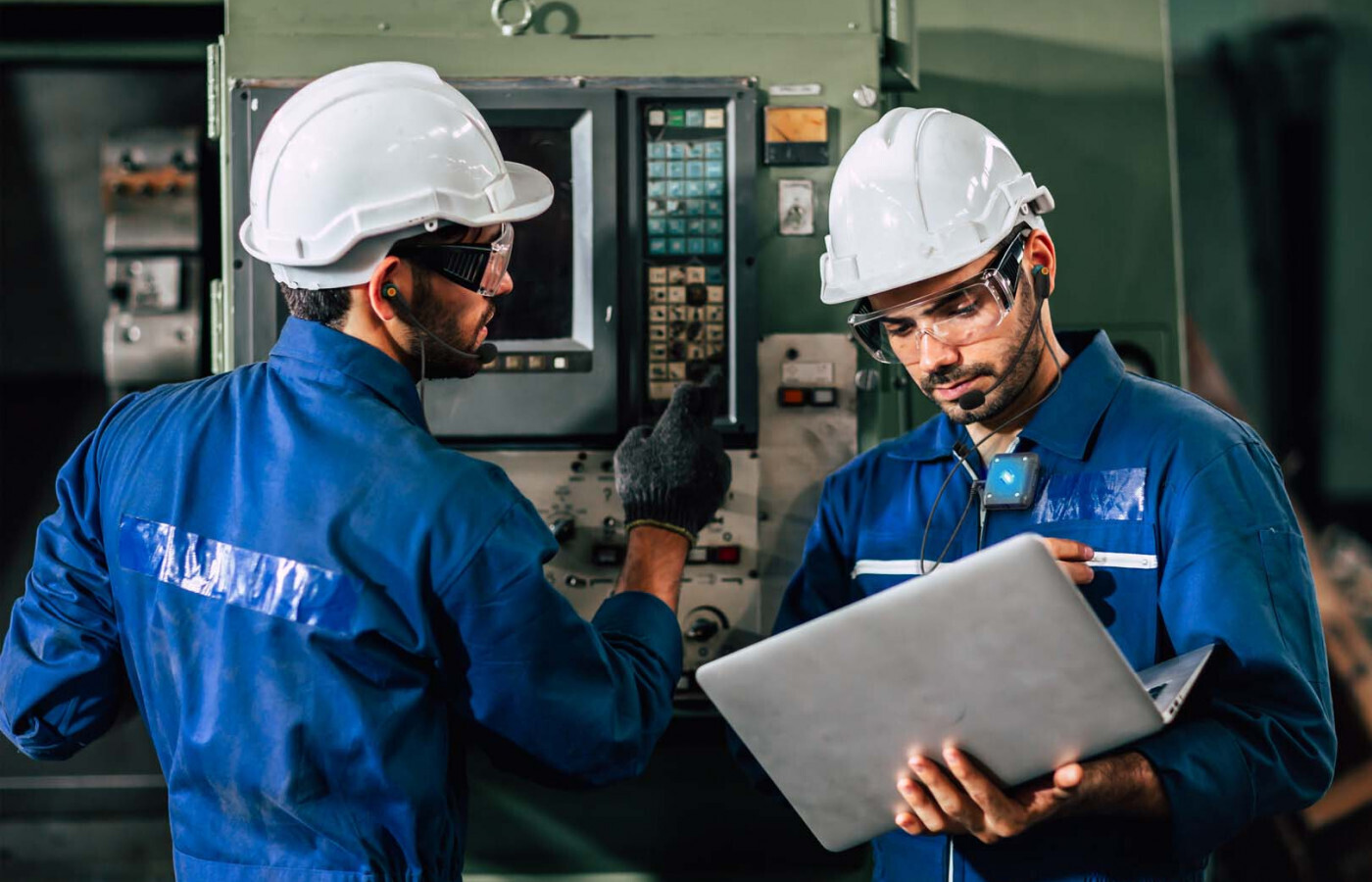
Hearing Protection
In an industrial environment, excessive noise is often omnipresent. Operating machinery, power tools and various production processes can generate high noise levels, exposing workers to hearing risks.
Examples of effective hearing protection solutions include helmets and molded plugs. Helmets are designed to attenuate noise considerably. Similarly, molded plugs offer customized protection, adapting perfectly to each individual's anatomy. Not only do these solutions help prevent hearing problems, they also play a vital role in maintaining workers' concentration. However, these hearing protectors isolate employees, who find themselves forced to remove them in order to talk to each other.
Communication
Communication in an industrial environment is like a well-orchestrated symphony. Teams need to be able to understand each other quickly and accurately to avoid costly delays and ensure quality of work. Smooth communications between production teams, project managers and maintenance teams are essential to maintain an efficient production chain.
A concrete example of the positive impact of communication in industry is the Louis solution. This is an ergonomic device that connects directly to hearing protection. Louis enables smooth communication between team members without latency, promoting optimal coordination. Employees can exchange essential information in real time, speeding up production processes and reducing the risk of errors.
Conclusion:
In conclusion, communication and hearing protection are inseparable elements of productivity in industry. Investment in both aspects contributes not only to greater productivity, but also to a safer, more pleasant working environment. The key to industrial success thus lies in the judicious balance between transparent communication and adequate protection of the senses, particularly hearing.
We use technical and analytics cookies to ensure that we give you the best experience on our website. More info.